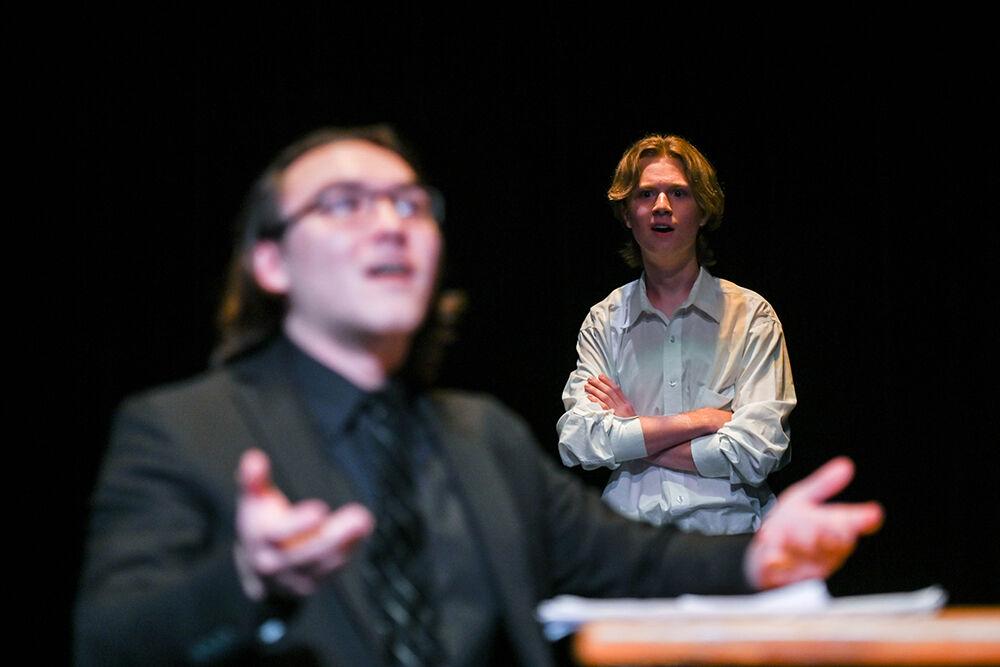A Peter Jackson film wouldn’t be complete if it weren’t three hours long and filled with dazzling set pieces, over the top action sequences and constant CGI effects. Upon becoming famous around the world when he helmed the Academy Award winning Lord of the Rings trilogy, the New Zealand di rector made it clear that he wasn’t ready to leave behind his beloved characters from the J.R.R. Tolkien universe.
Yet while it is a wildly en tertaining addition to the franchise, The Hobbit: The Desolation of Smaug is per haps an indicator that Jack son may have overstayed his welcome in Middle-Earth.
This second installment in the prequel trilogy be gins where An Unexpected Journey left off. Bilbo Bag gins (Martin Freeman) and his company of dwarves are one step closer to reach ing the Lonely Mountain of Erebor, where they must reclaim their treasure from the mighty dragon Smaug, voiced by the ever popular Benedict Cumberbatch.
As in the novel, the com pany encounters a swarm of giant spiders and a troop of Elves from the Mirkwood forest. While Bilbo, Tho rin (Richard Armitage) and company continue their quest, Gandalf (Ian McKel len) is off investigating the events surrounding the Necromancer and other evil forces at work.
McKellen’s scenes inves tigating the Necromancer only exist as a means of fore shadowing elements of “The Lord of the Rings” mythos, and tend to distract from Bil bo’s overarching story. These scenes don’t add much to the plot but do serve as an easy connection to the Lord of the Rings trilogy.
The decision to complete ly digitalize the white orcs hunting Bilbo and company is completely beyond me. I wasn’t thrilled by the decision to introduce the pale orc to begin with but I think a com pletely digital pale orc is a bad move. The high frame rate of 48 fps doesn’t add anything to the visual experience.
In comparison with the previous installment and LOTR, this film is by far Jack son’s most unfaithful adapta tion of Tolkien’s work. While I found the addition of Lego las (Orlando Bloom) and his love interest Tauriel (Evange line Lilly) to be surprisingly intriguing, it still doesn’t add anything substantial to the story. While he was once a renowned independent filmmaker, Jackson is steadily falling more and more into the Hollywood trap.
Jackson co-wrote the screenplay with fellow LOTR veterans Fran Walsh and Philippa Boyens, along with the equally iconic filmmaker Guillermo del Toro. Origi nally del Toro was signed on to direct a two part ad aptation of the novel, with Jackson serving as Executive Producer. While this project was unfortunately scratched due to some scheduling con flicts, it’s definitely the ver sion which I would rather see.
Let’s not forget that Jack son’s been able to maintain his principles as an artist in the past, even after attaining his status as a Hollywood icon. In 2005 he directed, cowrote and produced the excellent King Kong remake, which the late Roger Ebert called “one of the year’s best films”. And in 2009, his role as a producer of Neil Blom kamp’s District 9 was a driv ing force in bringing the criti cally acclaimed, indie-style film to life.
While Freeman delivers another outstanding per formance, the film unfor tunately devotes less time and attention to the titular protagonist in favor of more action and exaggerated spe cial effects. Nevertheless, the confrontation between him and Smaug is particularly well done in both the manner of its execution and the pre cise detail displayed. The set design and cinematography in this scene surpasses any amount of CGI creatures or digitalized effects in the en tire movie.
Needless to say, McKel len, Armitage and the other cast members are also great in reprising their respective roles. It’s also nice to see that several of the dwarves are a little more developed this time around, as this trilogy is already being filled with far too many one dimensional characters. While I get that this is a more whimsical tale being presented, it still re quires a sense of emotional depth in order for it to be properly conveyed.
While I am still a huge Pe ter Jackson and LOTR fan, I simply wish he had done a more faithful interpretaw tion of the book instead of an over-bloated and unnec essary trilogy. While I’ll still see the third installment in this trilogy next December, my favorite “Hobbit” adapta tion is still the 1977 Arthur Rankin animated film, which I highly recommend for those who have not seen it.
I’m more excited about Jackson directing the sequel to the animated Adventures of Tintin. Yet that won’t hap pen until he finally leaves be hind Middle-Earth.




